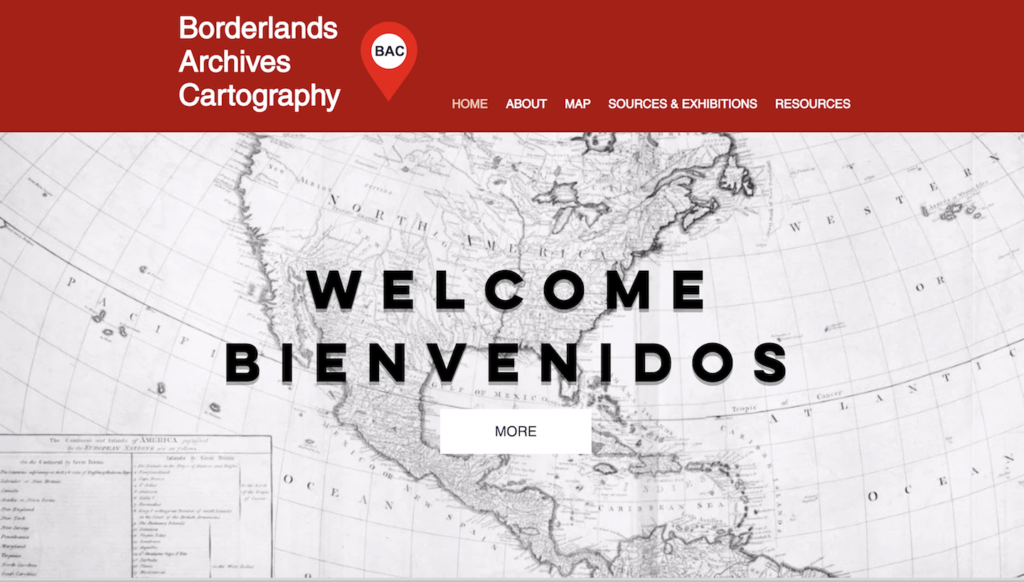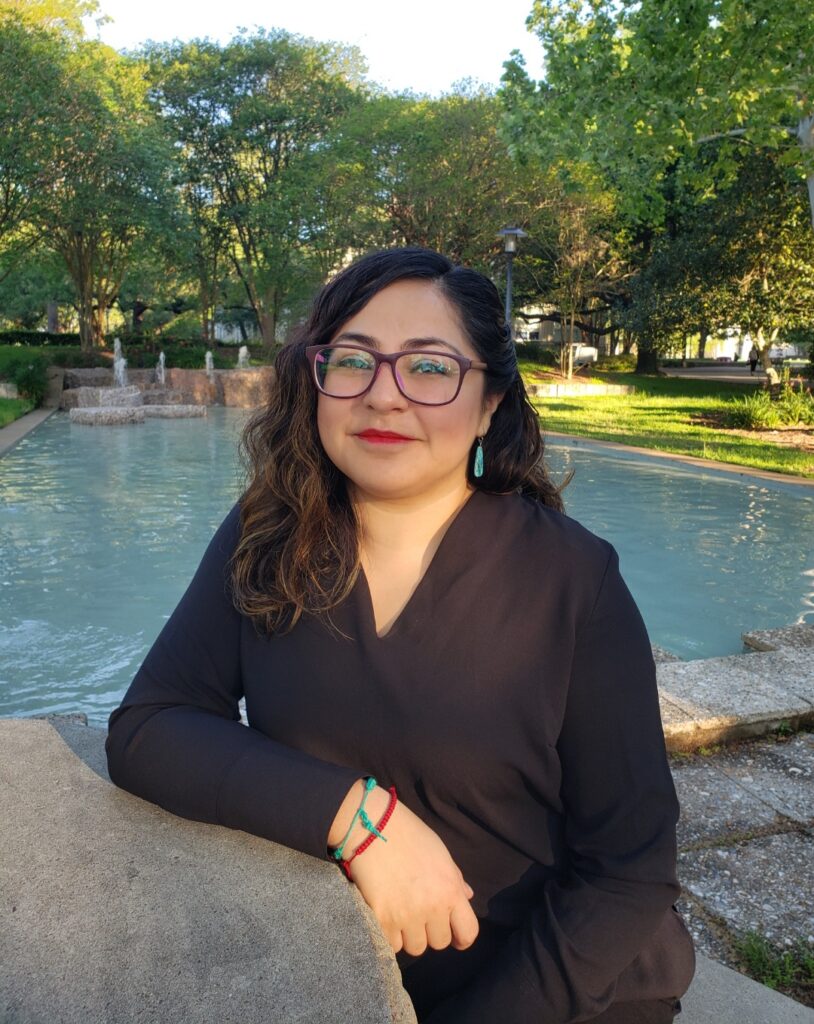Interviewed on March 9, 2021 by Anna E. Kijas
Sylvia A. Fernández, Ph.D is currently a Public and Digital Humanities Postdoctoral Fellow at the Hall Center for the Humanities, University of Kansas. She is a co-founder of Borderlands Archives Cartography, a member of Torn Apart / Separados, and team member and coordinator of the ongoing initiative of United Fronteras, as well as other collaborative projects. Fernández is working on a monograph and building a public and digital humanities project based on her dissertation titled, “Genealogía Transfronteriza: (Re)interpretaciones literarias de identidades femeninas en Cd. Juárez-El Paso”.
Fernández’s engagement with digital humanities (DH) began while she was a graduate student at the University of Houston. As she and her project co-founder Maira E. Álvarez worked on U.S.-Mexico border literature, they realized the limited perspective of the border through archives and literature, and decided that it was necessary to expand their scope by putting together primary sources, in this case newspapers, produced on both sides of the border include border in order to tell the many narratives of this binational region. Additionally, they were looking for a way to address the attacks on the border occurring during the Trump administration, and understand how people saw the border. Their conversations led to the development of Borderlands Archives Cartography, “a project to visualize the richness of transnational periodical archives located along the U.S.-Mexico border region since 1808 to 1930.” Although Fernández and Álvarez did not set out specifically to create a digital humanities project, they realized that conversations about access to archives or creating digital archives, in addition to use of technology and methods (e.g. geospatial visualization) were more often present in the work of practitioners in the digital humanities community than in their own disciplinary fields.

When asked about mentorship and community in digital humanities, Fernandez notes that several scholars, in particular, Élika Ortega, Alex Gil, and Roopika Risam, as well as the HASTAC Scholars made an important impact on her, encouraging her to apply for seed grants and scholarships, as well as to become more deeply involved in the digital humanities community. For example, Fernández received valuable feedback and considerations about sustainability and ownership which led her to make a conscious decision to keep this an independent project, especially as graduate students, so that it could move with them and evolve. She points out that she “felt that the community was welcoming to support scholars of color into DH.” Another observation Fernández makes is that she views the digital humanities community as more welcoming of works in progress and as an opportunity to help shape the development of the project through feedback. Working on Torn Apart / Separados with Risam, Gil, Moacir P. de Sá Pereira, Merisa Martínez, Manan Ahmed and others, Fernández points out that they gave her a different understanding of doing DH, considering approaches to project management, assigning project responsibilities and bringing everyone’s expertise into the project. Fernández also credits Brian Rosenbloom, Co-founder and co-director of the Institute of Digital Research in the Humanities at the University of Kansas, with providing her with insight into the DH side of libraries, which has been helpful to her understanding of DH more broadly. Similarly, she is very grateful to have the opportunity to have the best teammates and be able to work and learn from Maira Alvarez, Carolina Alonso, Verónica Romero, Laura Gonzales, Annette Zapata, Ivonne Ramírez, Rubria Rocha, Rosario Rogel, Verónica Benítez-Pérez, Abraham Monroy and Alan Colín.
Fernández hopes that Borderlands Archives Cartography, United Fronteras, among other projects in the line of Borderlands Digital Humanities will continue to grow in the future in order to continue doing social justice work by building bridges between communities in the Global North and South. She is interested in future collaborations, the possibility of creating partnerships with community members and organizations, and presenting these projects in museums and as public exhibitions. Fernández is currently working with Gris Muñoz, an artist (poet from El Paso), to collect testimonials or short stories about women in the border region. In 2020, they were awarded a Transborder Arts Fund from the Rubin Center for Visual Arts at UTEP to support this project titled, GeoTestimonios Transfronterizxs. The intention is “to create a digital cartography artifact that can tell particular stories from particular places on the border from women. How memory and literature recreates the places that have disappeared, etc.” They plan to make the first part available publicly in July 2021 and will continue with their workshop series with the hope that it will motivate other women to share their stories. Fernández believes that DH is also art and a space for community building and not just an academic pursuit. There is the potential to influence people through visual images, working in collaboration, rebuilding and creating new analog and digital tools. She has seen and participated in a DH community/field, set of practices and values that can have a personal and community impact in and out of academia and across borders. Fernandez mentions that DH has allow her to explore transborder identities and historical-feminists views through languages, literature, archives, and the digital record, foregrounding a deep exploration of (re)building models of transborder-transnational data, network analysis, visualizations, maps, and DH projects.

[…] Read full post here. […]